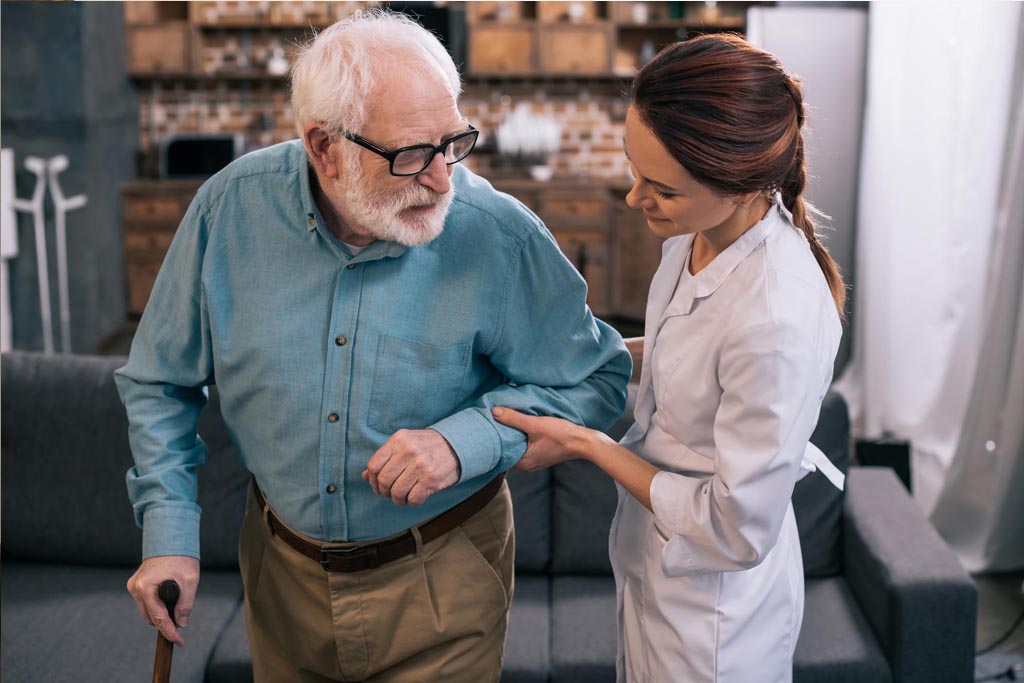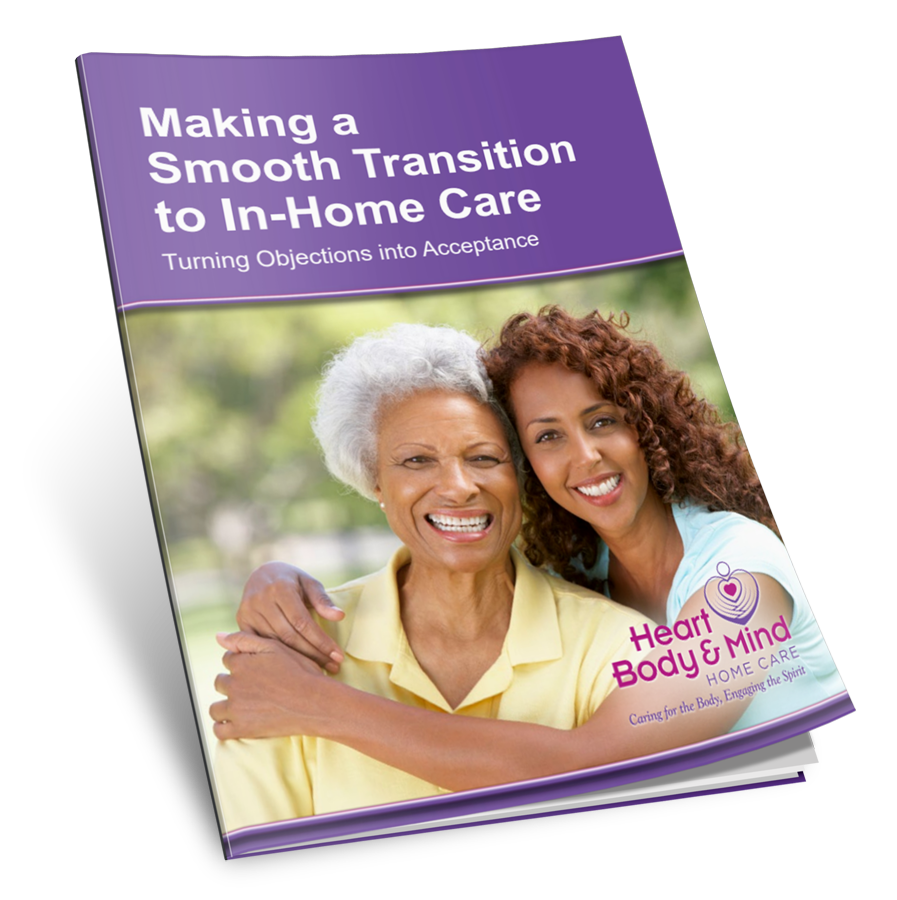Service is Our Passion, Excellence is Our Promise

Now that your family member or friend has received a diagnosis of Alzheimer’s disease it’s important to learn as much as you can about the disease and how to care for someone who has it. At Heart, Body & Mind Home Care, we feel that it is important for family members to know the right way to share the news with other family and friends.
Sometimes, you may feel that you don’t know how to care for the person with Alzheimer’s. This is a common feeling among caregivers of people with Alzheimer’s because each day may bring different challenges. Learning about the disease can help you understand and cope with these challenges. Heart, Body & Mind Home Care offers free information about Alzheimer’s disease for families and caregivers.
Alzheimer’s disease is an illness of the brain. It causes large numbers of nerve cells in the brain to die. This affects a person’s ability to remember things and think clearly. People with Alzheimer’s become forgetful and easily confused and may have a hard time concentrating. They may have trouble taking care of themselves and doing basic things like making meals, bathing, and getting dressed.
Alzheimer’s varies from person to person. It can progress faster in some people than in others, and not everyone will have the same symptoms. In general, though, Alzheimer’s takes many years to develop, becoming increasingly severe over time. As the disease gets worse, people need more help. Eventually, they require total care.
Alzheimer’s disease consists of three main stages: mild (sometimes called early-stage), moderate, and severe (sometimes called late stage). Understanding these stages can help you care for your loved one and plan ahead.
In the mild stage of Alzheimer’s, people often have some memory loss and small changes in personality. They may have trouble remembering recent events or the names of familiar people or things. They may no longer be able to solve simple math problems or balance a checkbook. People with mild Alzheimer’s also slowly lose the ability to plan and organize. For example, they may have trouble making a grocery list and finding items in the store.
In the moderate stage of Alzheimer’s, memory loss and confusion become more obvious. People have more trouble organizing, planning and following instructions. They may need help getting dressed and may start having problems with bladder or bowel control. People with moderate Alzheimer’s may have trouble recognizing family members and friends. They may not know where they are or what day or year it is. People with moderate stage Alzheimer’s may also begin to wander, so they should not be left alone. Personality changes can become more serious. For example, people may make threats or accuse others of stealing.
In the severe stage of Alzheimer’s, people usually need help with all of their daily needs. They may not be able to walk or sit up without help. They may not be able to talk and often cannot recognize family members. They may also have trouble swallowing and therefore refuse to eat.
So far, there is no cure for Alzheimer’s, but there are treatments that can prevent some symptoms from getting worse for a limited time. Below are some ways that you can learn more about Alzheimer’s disease.
When you learn that someone has Alzheimer’s disease, you may wonder when and how to tell your family and friends. You may also be worried about how others may react to or treat the person. Others often sense that something is wrong before they are told. Alzheimer’s disease is hard to keep secret. When the time seems right, be honest with family, friends, and others. Use this as a chance to educate them about Alzheimer’s disease. You can share information to help them understand what you and the person with Alzheimer’s are going through. You can also tell them what you can do to help.
Listed below are suggestions of how you can help family and friends understand how to interact with the person who has Alzheimer’s.
If the person with Alzheimer’s has young children or grandchildren, you can help them understand what is happening. Answer their questions simply and honestly. For example, you might tell a young child “Grandma has an illness that makes it hard for her to remember things.” Know that their feelings of sadness and anger are normal. Comfort them. Tell them they didn’t cause the disease.
If the child lives with someone who has Alzheimer’s, don’t expect him or her to “babysit” the person. Make sure the child has time for his or her own interests and needs, such as playing with friends and going to school activities. Spend time with the child, so that he or she doesn’t feel that all your attention is on the person with Alzheimer’s. Many younger children will look to you to see how to act around the person with Alzheimer’s disease. Show children that they can still talk with the person and help them enjoy things. Doing fun things together, like arts and crafts or looking through photo albums, can help both the child and the person with Alzheimer’s.
A teenager might find it hard to accept how the person with Alzheimer’s has changed. He or she may find the changes upsetting or embarrassing or not want to be around the person. Talk with teenagers about their concerns and feelings. Don’t force them to spend time with the person who has Alzheimer’s.
Heart Body & Mind Home Care is committed to the principle that it takes more than just effort to provide care to another human being – it takes heart. Our hearts are in all that we do. If you are interested in learning more about our compassionate home care and wellness services in Southwest Florida, including Lee, Collier, Charlotte and Sarasota Counties please Contact Us at (866) 488-1485.
Further information can be found on our web site at www.HBMhomecare.com.
Source: This information in this article was provided by the National Institue on Aging.
We Accept Most Long-Term Care Insurance. Call to speak with a Senior Care Advisor to learn about your policy benefits.

Making a smooth transition to home care. Turning objections into acceptance.
12670 World Plaza Lane
Bldg 62, Suite 2
Fort Myers, FL 33907